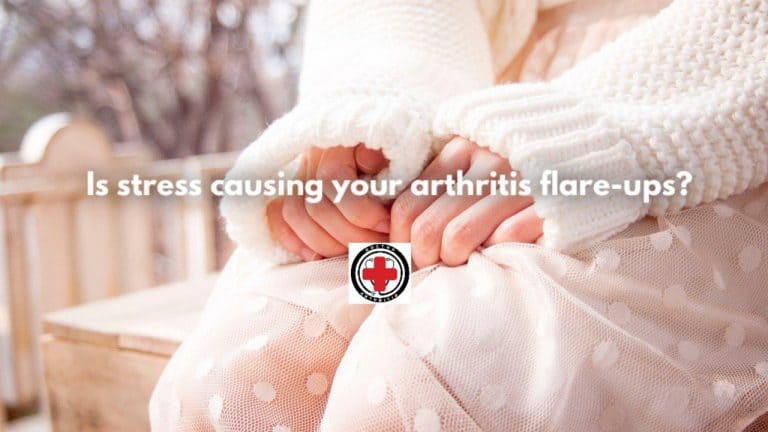With over 1 million orders

COULD STRESS TRIGGER ARTHRITIS?
Think back to the last time you had a flare up. Did a stressful or traumatic event precede it?
Researchers have long tried to make a definitive connection between emotional distress and arthritis. But while numerous studies claim to link negative life events to the onset of symptoms, a lot of questions still remain.
Making the Connection
As far back as 2010, a study among people suffering from rheumatoid arthritis (RA) saw subjects who were able to directly connect a stressful event to the onset of their condition. The researchers however concluded that the correlation was only made as a way to give meaning and establish a sense of control over their condition.
What does this study imply? That there really is no direct cause-and-effect relationship between stress and chronic joint pain.
However, other studies report different findings and have identified an association between stress and increased risk for arthritis. In fact, one study saw a 100 percent increase in rheumatic diseases for people who had experienced two or more traumatic events in childhood, versus those who didn’t. And in another research, this time involving veterans, more symptoms and impairment presented itself among subjects with PTSD (post traumatic stress disorder).
The Real Role of Stress
Research conducted to understand the correlation of chronic joint pain illnesses and stress are extensive. But to date, the role stress has over arthritis remains unclear—even amid numerous studies and growing evidence that it could make arthritic symptoms worse.
Why? Chalk it up to the fact that stress itself is particularly hard to measure.
Stress is subjective.
People’s reactions to stressful situations will vary greatly depending on a lot of other subjective factors such as the cause, the patient’s current state of mind and emotions, general health, the environment, just to name a few. It’s also worth noting that the human body doesn’t really have a standard response for stress that researchers can use as a baseline for their studies. This means any kind of study on the effect of stress on the body will have no choice but to start with very little quantitative data, that makes it all the more difficult to make a definitive conclusion.
Here’s What You Can Do About It
Rest assured that the medical community is hard at work to give millions of arthritis sufferers a real answer. But while they’re working to find a connection between stress and arthritis, one thing is for sure: stress can affect your health in general—even though you may not realize it—and it can manifest itself in different ways…from nagging headaches or persistent insomnia; chest pains to stomach problems; restlessness to irritability; isolation to anxiety.
If you already suffer from chronic pain, needless to say that adding all these to a running list of symptoms that you have manage can be very overwhelming. And that can inevitably lead to stress, lower your pain threshold, and make your symptoms feel worse than they already are. Stress prompts a never ending, vicious loop of anxiety and pain. And you have to consciously break this by trying to find better ways to manage your stress.
Here’s our advice–
- If at all possible, try to incorporate physical activity into your daily routine.
- Practice relaxation techniques including meditation and deep breathing.
- Try to keep everything in perspective.
- Do not alienate family and friends, even during your worst days.
- Set aside time to pursue a hobby—even something as simple as reading, or listening to music.
- Eat a healthy balanced diet
And perhaps most important of all…
- Know when to seek help. There are others out there who know exactly what you’re going through. Find a support group, talk to your doctor, reach out to family, and friends, and identify channels that can help you open up about what it’s like to live with arthritis.
